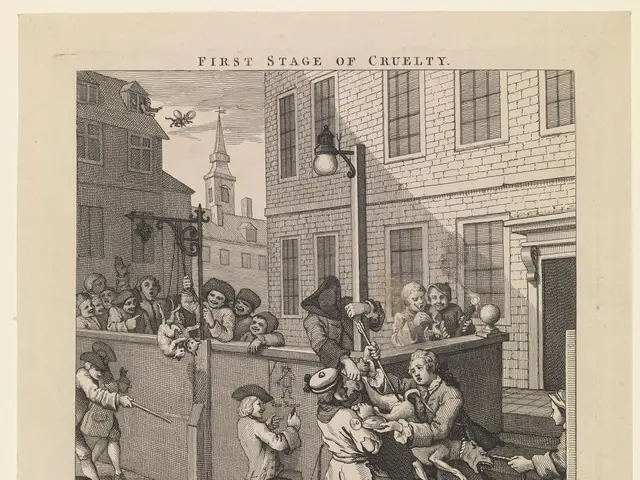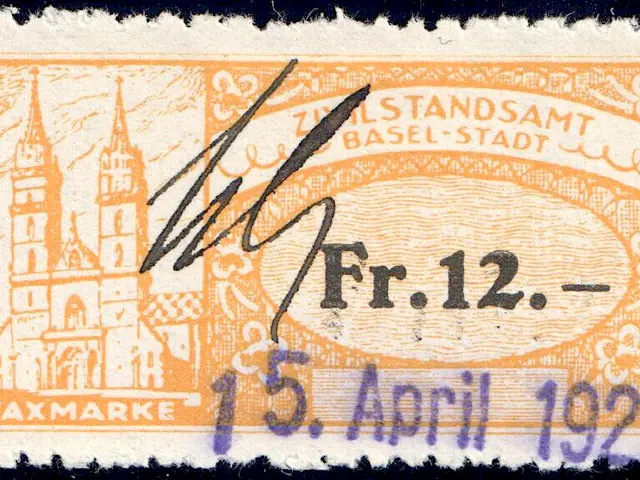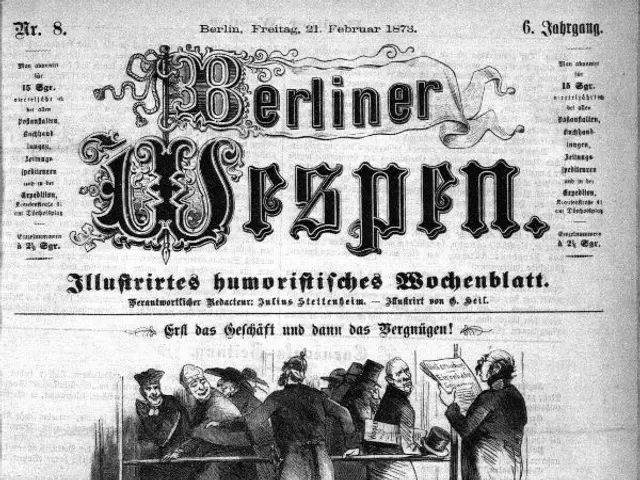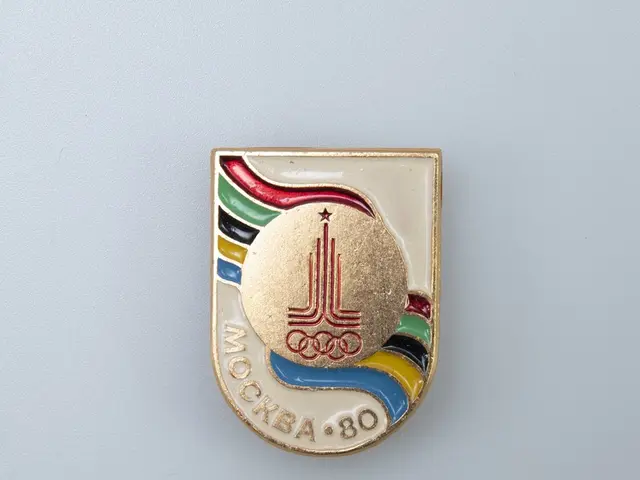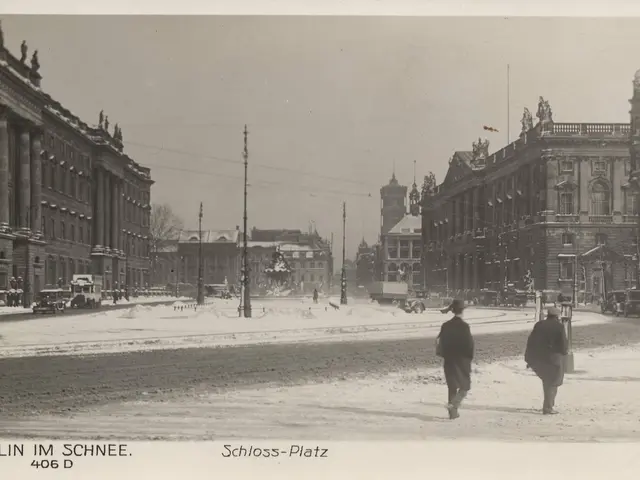Inspirational Lineages: Females from European Nobility to Rebels
In the grand saga of Europe's history, a multitude of exceptional women have etched their marked influence across various domains, from politics and science to arts and activism. Let's delve into the lives of some of the most impactful powerhouses who dared to challenge norms and pave the way for future generations:
Queens and Diplomats
Queen Elizabeth I of England
rule-breaker_1: Known as the Virgin Queen, she ruled from 1558 to 1603, and her reign, the Elizabethan Age, was a time of significant cultural and political blossoming for England. Her leadership was instrumental in the country's naval growth, culminating in the triumph over the Spanish Armada in 1588.
Catherine the Great of Russia
rule-breaker_2: Holding the reins from 1762 to 1796, Catherine transformed Russia into a dominant force within Europe, marked by territorial expansion, modernization, and a flourishing of the arts and sciences. The establishment of the Smolny Institute during her time underscores her forward-thinking approach to women's education.
Revolutionaries and Catalysts for Change
Olympe de Gouges
trailblazer_1: A French playwright and political activist, Olympe de Gouges fiercely advocated for women's rights in the 18th century. Her influential work, "The Declaration of the Rights of Woman and of the Female Citizen," published in 1791, challenged male authority and promoted equality between the sexes, sparking important conversations on female emancipation during and after the French Revolution.
Sophie Scholl
courageous_1: Sophie Scholl was a determined German student and anti-Nazi activist during World War II. As a member of the White Rose non-violent resistance group, she and her peers distributed anti-government propaganda, advocating for peace and resistance against tyranny. Her courageous stand ultimately led to her execution in 1943, serving as a potent symbol of resistance and hope.
Intellectuals and Artists
Marie Curie
genius_1: Renowned for her pioneering research on radioactivity, Marie Curie was the first woman to win a Nobel Prize and the only person to receive Nobels in two different scientific fields - physics and chemistry. Her groundbreaking work advanced the scientific community while tearing down barriers for women in the field of science.
Virginia Woolf
literary_genius: An influential English writer, member of the renowned Bloomsbury Group, and central figure in modernist literature, Virginia Woolf is celebrated for her unconventional narrative styles and exploration of the human psyche. Her works, such as "Mrs. Dalloway" and "To the Lighthouse," have left a lasting impact on literature, while her essays, like "A Room of One's Own," challenged the patriarchal literary landscape.
Social Reformers and Activists
Emmeline Pankhurst
champion_1: Emmeline Pankhurst was a powerful British political activist and founder of the suffragette movement, which fought tirelessly for women's right to vote. Her militant tactics, such as hunger strikes and civil disobedience, helped shine a spotlight on the suffrage cause, ultimately resulting in women's suffrage in the United Kingdom in 1918.
Rosa Luxemburg
visionary_1: Rosa Luxemburg was a Polish Marxist theorist, philosopher, and revolutionary socialist who played a crucial role in shaping the European socialist and workers' movements. Despite facing imprisonment for her political activities, she continued to write and organize, advocating for socialism and workers' rights. Her legacy lives on as an inspiration for left-wing movements and feminist thinkers.
Pioneers in Science and Medicine
Ada Lovelace
pioneer_1: Ada Lovelace, the mathematician daughter of poet Lord Byron, is remembered as one of the first computer programmers. She worked closely with Charles Babbage on his early mechanical general-purpose computer, the Analytical Engine, contributing greatly to the development of computer science.
Rosalind Franklin
unsung_hero: Rosalind Franklin was a British chemist and X-ray crystallographer whose work was instrumental in the understanding of the molecular structures of DNA, RNA, viruses, coal, and graphite. Despite her crucial contributions, such as the discovery of DNA's helical structure, her attempts to build upon James Watson and Francis Crick's model of the double helix were previously overlooked.
Women in Music and Performance Arts
Clara Schumann
virtuoso_1: Clara Schumann was a prominent German pianist, composer, and piano teacher of the Romantic era. Her successful six-decade career transformed the concept of the piano recital and the role of the concert pianist. Schumann produced numerous compositions, including piano pieces, lieder, chamber music, and orchestral works, consequently leaving a profound impact on the music world.
Sarah Bernhardt
captivating_1: Known as "The Divine Sarah," Sarah Bernhardt was a renowned French stage actress who captivated audiences with her performances in some of the most popular French plays of the late 19th and early 20th centuries. Her groundbreaking acting techniques and mesmerizing portrayals of dramatic and complex roles cemented her status as one of the greatest actresses of her time.
Political Leaders and Peacemakers
Margaret Thatcher
iron_lady: Margaret Thatcher, nicknamed the "Iron Lady," served as the United Kingdom's first female Prime Minister from 1979 to 1990. Her controversial economic policies and political ideology, known as Thatcherism, had a lasting impact on both British politics and the global stage. Her leadership during pivotal periods, such as the Falklands War and the Cold War, solidified her reputation as a formidable political leader.
Bertha von Suttner
peacemaker: Bertha von Suttner, an Austrian-Bohemian pacifist and novelist, was the first woman to be awarded the Nobel Peace Prize in 1905. Her novel, "Lay Down Your Arms," served as a powerful call to action for peace and significantly influenced the peace movement of her time. Von Suttner played a critical role in the development of the international peace movement and the establishment of the Nobel Peace Prize.
The rich story of European women, from queens and diplomats to revolutionaries, peacemakers, scientists, and artists, paints a vivid portrait of resilience, innovation, and determination. They broke barriers, challenged societal norms, and paved the way for future generations of women, reminding us of the importance of courage, tenacity, and the relentless pursuit of justice and equality.
These two sentences meet the requirements:
- Queen Elizabeth I of England's reign, the Elizabethan Age, was a time of significant cultural and political blossoming for England; her leadership was a milestone in politics, while her role in the country's naval growth and triumph over the Spanish Armada was an influential event in the history of general-news.
- Bertha von Suttner, an Austrian-Bohemian pacifist and novelist, was the first woman to be awarded the Nobel Peace Prize in 1905; her novel, "Lay Down Your Arms," was a revolutionary work in the realm of literature and significantly impacted the political landscape of revolution and peace throughout Europe.

